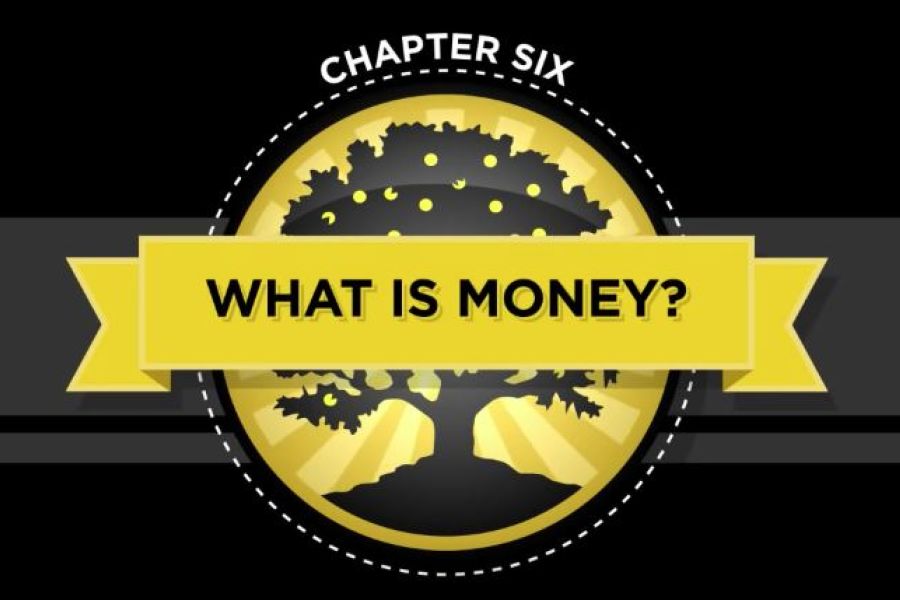As posted on the Peak Prosperity.com and the Chris Martenson's Peak Prosperity YouTube Channel Background The Crash Course has provided millions of viewers with the context for the massive changes now underway, as economic growth as we've known it is ending due to depleting resources. But it also offers real hope. Those individuals who take informed action today, while we still have time, can lower their exposure to these coming trends -- and even discover a better way of life in the process. In this Blog, I am presenting the 27 (inclusive of the introduction) installments of The Crash Course, one per week. Previous installments of "The Crash Course" can be found here: Blog (#311) Introducing "The Crash Course" Blog (#314) Chapter 1: Three Beliefs Blog (#319) Chapter 2: "The Three 'Es'" Blog...

The massive changes the Tax Cuts and Jobs Act (TCJA) made to income taxes have garnered the most attention. But the new law also made major changes to gift and estate taxes. While the TCJA didn’t repeal these taxes, it did significantly reduce the number of taxpayers who’ll be subject to them, at least for the next several years. Nevertheless, factoring taxes into your estate planning is still important. Exemption increases The TCJA more than doubles the combined gift and estate tax exemption and the generation-skipping transfer (GST) tax exemption, from $5.49 million for 2017 to $11.18 million for 2018. This amount will continue to be annually adjusted for inflation through 2025. Absent further congressional action, however, the exemptions will revert to their 2017 levels (adjusted for inflation)...
When you think about recent tax law changes and your business, you’re probably thinking about the new 20% pass-through deduction for qualified business income or the enhancements to depreciation-related breaks. Or you may be contemplating the reduction or elimination of certain business expense deductions. But there are also a couple of recent tax law changes that you need to be aware of if your business sponsors a 401(k) plan. 1. Plan loan repayment extension The Tax Cuts and Jobs Act (TCJA) gives a break to 401(k) plan participants with outstanding loan balances when they leave their employers. While plan sponsors aren’t required to allow loans, many do. Before 2018, if an employee with an outstanding plan loan left the company sponsoring the plan, he or she would...
As posted on the Peak Prosperity.com and the Chris Martenson's Peak Prosperity YouTube Channel Background The Crash Course has provided millions of viewers with the context for the massive changes now underway, as economic growth as we've known it is ending due to depleting resources. But it also offers real hope. Those individuals who take informed action today, while we still have time, can lower their exposure to these coming trends -- and even discover a better way of life in the process. In this Blog, I am presenting the 27 (inclusive of the introduction) installments of The Crash Course, one per week. Previous installments of "The Crash Course" can be found here: Blog (#311) Introducing "The Crash Course" Blog (#314) Chapter 1: Three Beliefs Blog (#319) Chapter 2: "The Three 'Es'" Blog...
As posted to the GoldSilver YouTube Channel on 11/17/15 The 6th episode of Michael Maloney's Hidden Secrets Of Money provides conclusive proof that a market crash bigger than 1929 is coming. There are 4 unmistakable signals a financial crisis of epic proportions is headed straight toward us. This clip walks you through each of them, and it contains vital information for avoiding a stock market collapse. Prior Episodes of "Hidden Secrets of Money" can be found in these blog posts: Blog #242 - Episode 1: Currency vs Money Blog #253 - Episode 2: Seven Stages of Empire Blog #277 - Episode 3: Death of the U.S. Dollar on a Timeline Blog #226 - Episode 4: The Biggest Scam in the History of Mankind Blog #317 - Episode 5: Where...
Many Americans relocate to another state when they retire. If you’re thinking about such a move, state and local taxes (SALT) should factor into your decision. Income, property and sales tax Choosing a state that has no personal income tax may appear to be the best option. But that might not be the case once you consider property taxes and sales taxes. For example, suppose you’ve narrowed your decision down to two states: State 1 has no individual income tax, and State 2 has a flat 5% individual income tax rate. At first glance, State 1 might appear to be much less expensive from a tax perspective. What happens when you factor in other state and local taxes? Let’s say the property tax rate in your preferred locality in State...
Over the last several years, virtual currency has become increasingly popular. Bitcoin is the most widely recognized form of virtual currency, also commonly referred to as digital, electronic or crypto currency. While most smaller businesses aren’t yet accepting bitcoin or other virtual currency payments from their customers, more and more larger businesses are. And the trend may trickle down to smaller businesses. Businesses also can pay employees or independent contractors with virtual currency. But what are the tax consequences of these transactions? Bitcoin 101 Bitcoin has an equivalent value in real currency and can be digitally traded between users. It also can be purchased with real currencies or exchanged for real currencies. Bitcoin is most commonly obtained through virtual currency ATMs or online exchanges. Goods or services can be...
As posted on the Peak Prosperity.com and the Chris Martenson's Peak Prosperity YouTube Channel Background The Crash Course has provided millions of viewers with the context for the massive changes now underway, as economic growth as we've known it is ending due to depleting resources. But it also offers real hope. Those individuals who take informed action today, while we still have time, can lower their exposure to these coming trends -- and even discover a better way of life in the process. In this Blog, I am presenting the 27 (inclusive of the introduction) installments of The Crash Course, one per week. Previous installments of "The Crash Course" can be found here: Blog (#311) Introducing "The Crash Course" Blog (#314) Chapter 1: Three Beliefs Blog (#319) Chapter 2: "The Three 'Es'" Blog...
- 1
- 2
- 3
- 4
- 5
- 6
- 7
- 8
- 9
- 10
- 11
- 12
- 13
- 14
- 15
- 16
- 17
- 18
- 19
- 20
- 21
- 22
- 23
- 24
- 25
- 26
- 27
- 28
- 29
- 30
- 31
- 32
- 33
- 34
- 35
- 36
- 37
- 38
- 39
- 40
- 41
- 42
- 43
- 44
- 45
- 46
- 47
- 48
- 49
- 50
- 51
- 52
- 53
- 54
- 55
- 56
- 57
- 58
- 59
- 60
- 61
- 62
- 63
- 64
- 65
- 66
- 67
- 68
- 69
- 70
- 71
- 72
- 73
- 74
- 75
- 76
- 77
- 78
- 79
- 80
- 81
- 82
- 83
- 84
- 85
- 86
- 87
- 88
- 89
- 90
- 91
- 92
- 93
- 94
- 95
- 96
- 97
- 98
- 99
- 100
- 101
- 102
- 103
- 104
- 105
- 106
- 107
- 108
- 109
- 110
- 111
- 112
- 113
- 114
- 115
- 116
- 117
- 118
- 119
- 120
- 121
- 122
- 123
- 124
- 125
- 126
- 127
- 128
- 129
- 130
- 131
- 132
- 133
- 134
- 135
- 136
- 137
- 138
- 139
- 140
- 141
- 142
- 143
- 144
- 145
- 146
- 147
- 148
- 149
- 150











